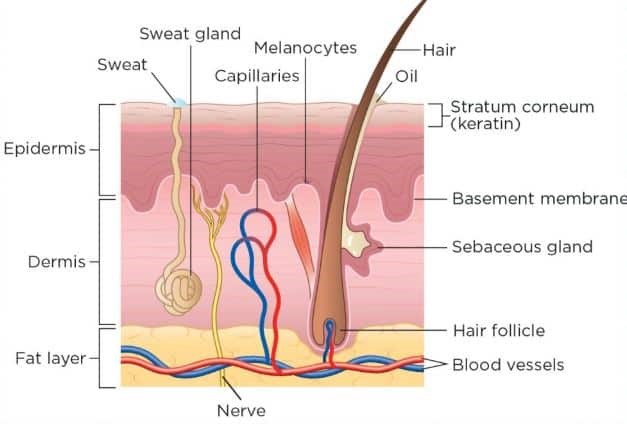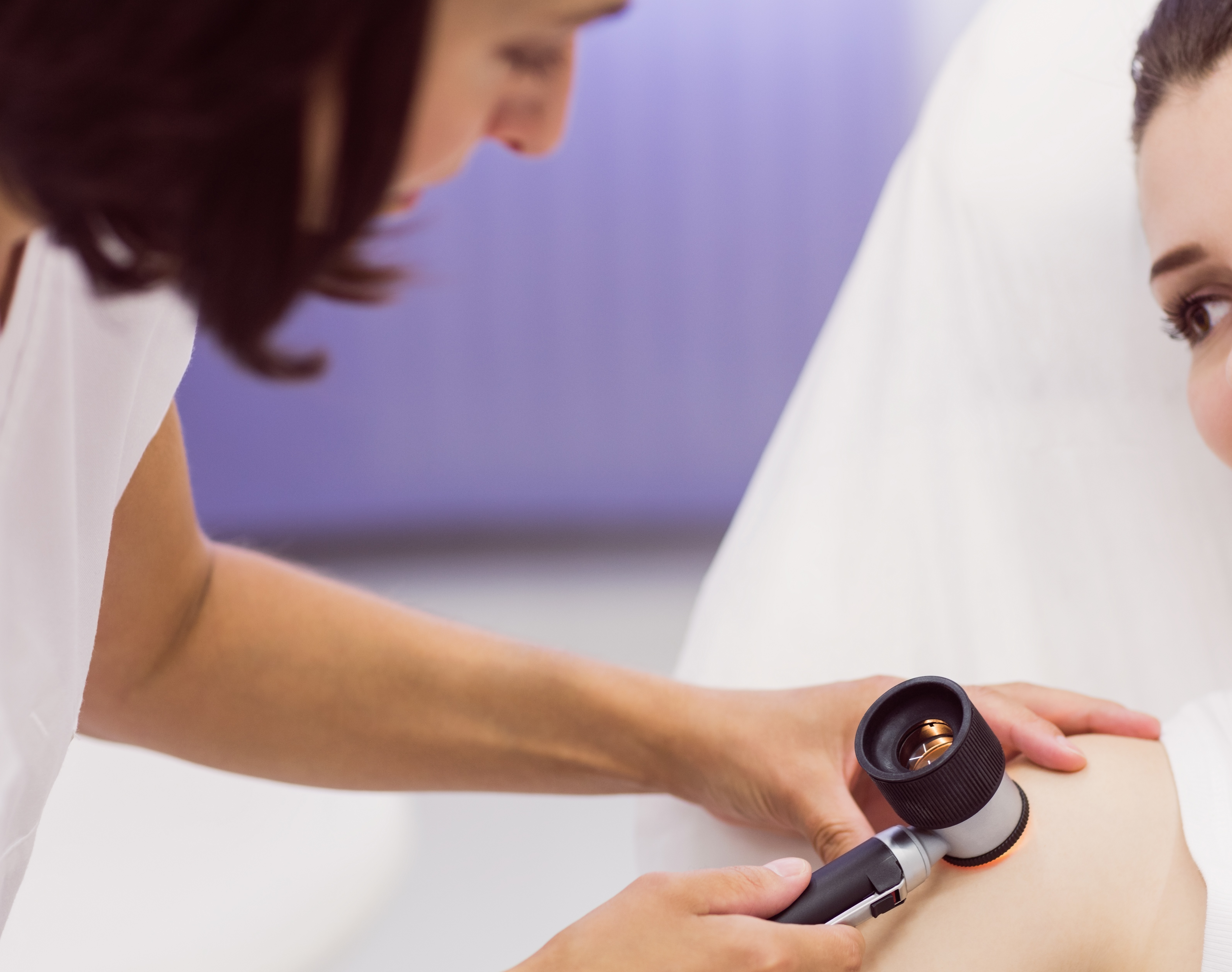NUHS Institutions will NEVER ask you to transfer money or disclose bank details over a call.
If in doubt, call the 24/7 ScamShield helpline at 1799, or visit the ScamShield website at www.scamshield.gov.sg.
The skin consists of different structural layers - epidermis, dermis, subcutis. Various types of cells such as the pigment cells (melanocytes) and glands (sweat glands) form part of the skin.

Skin cancer is a group of abnormal cells that has developed from part of the skin. These cancerous cells have the potential to invade surrounding healthy tissues or spread to other parts of the body.
Skin cancer can broadly be classified as melanoma or non-melanoma skin cancer (NMSC).
Common types of cancer in Singapore include NMSCs such as basal cell carcinoma, squamous cell carcinoma and cutaneous melanoma
Skin cancers can also present in precancerous forms which lends themselves to early detection and treatment.
Patient/ Personal factor
Lifestyle factor
*People who think they may be at risk should discuss this with their doctor.
Some of these cancers can develop insidiously. They may be mistaken for ‘moles’ or age spots.
In the early stages of skin cancers, they are usually symptom-free. They may first appear as new-onset or enlarging pigmentation on the skin, persistent scaling, crust or erosion (broken skin) commonly over sun exposed areas, new pearly or red bumps on the skin.
Any mole (even longstanding) that has undergone a sudden change in color, size, shape or speed of growth can be suspicious of skin cancer.
Non-sun exposed areas can also be affected.
*where appropriate
At a specialist visit, the doctor may ask you about your family history and conduct a medical examination.
Dermoscopy

During the clinic visit, dermoscopy may be conducted to examine your skin closer. The doctor will use a dermatoscope, a handheld instrument to magnify the affected area for better visualisation.
Biopsy
Biopsy is a sampling of a small specimen of skin, that is recommended for histologic examination. This may take the form of a punch biopsy or an excision. Your doctor will discuss this in detail with you before the procedure.
The main treatment options are divided into surgery and non-surgical options. Treatment plans are tailored to the individual patient according to their medical profile.
Surgery
Surgery is the most common form of treatment and usually definitive for certain forms of skin cancer. During the surgery, the cancer and surrounding tissue is removed. A follow-up procedure for skin coverage (skin graft or skin flap) may be necessary.
Surgical options include:
Certain early cancers may be treated by locally ablative procedures.
These procedures include:
Non-surgery
Non-surgical options may be applicable for certain forms of cancer or patient profile. They include
*for certain advanced skin cancers
We have a strong focus on patient care. Clinical management should be forged on a partnership and common understanding between patients and doctors.
For the general public and wider medical community
Prevention and education are two pillars of knowledge we advocate.
We offer skin cancer surveillance clinics for certain at-risk populations, such as transplant recipients, patients on long-term immunosuppressive medications, strong history of familial skin cancer, etc.
We organise talks and symposiums catering to skin health and awareness of skin cancers.
For individual patient
We ascribe to certain principles in managing skin cancer.
At NCIS, we work in a multidisciplinary team comprising of dermatologists, pathologists, plastic and musculoskeletal reconstructive surgeons, medical and radiation oncologists, otolaryngology - head and neck surgeons.
We recognise that skin cancers can commonly affect cosmetically-sensitive locations of the body.
Treatment plans for each patient is discussed at regular multidisciplinary meetings with the best option selected for the patient.
Following a prescribed treatment plan, patients are offered to enroll in a skin cancer surveillance clinic for regular monitoring by our specialists.
Dermatology
Otolaryngology-Head & Neck Surgery
Plastic, Reconstructive & Aesthetic Surgery
Radiation Oncology
Medical Oncology
Pathology
Musculoskeletal Oncology
Hand & Reconstructive Microsurgery